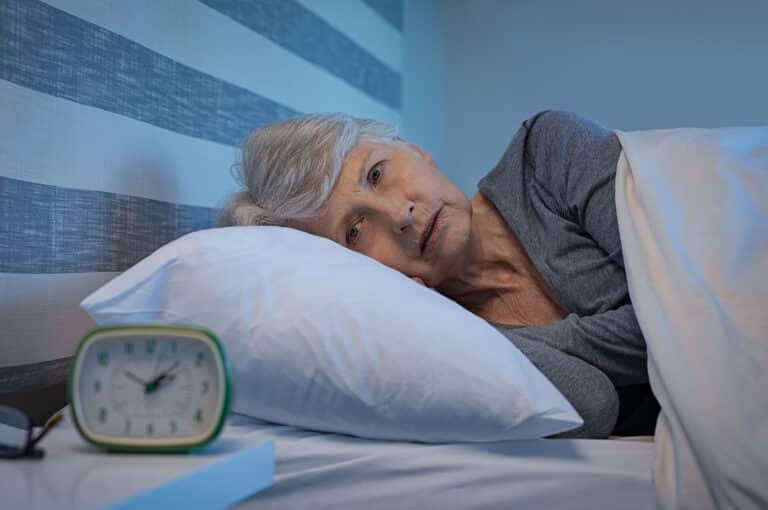Although many people joke about the inability to sleep well as a person ages, getting a good night’s sleep and being well-rested is an important part of your loved one’s healthcare. It shouldn’t be an afterthought or given the “oh, whatever it is, it is” treatment.
Instead, if your elderly loved one is struggling to sleep well at night, take some proactive steps to help her have a restful night’s sleep every night, like considering assisted living at home services. It’ll improve many aspects of her daily quality of life.
How a Bad Night’s Sleep Can Make a Bad Day
Sleep is essential for more than just rest—it’s a critical time for the body to repair and recharge. For individuals receiving assisted living at home, consistent, quality sleep plays a vital role in maintaining overall health.
Missing out on good sleep can lead to immediate effects, such as fatigue and irritability, and over time, it may contribute to more serious health issues. Ensuring proper rest is crucial for well-being, especially when living with added care needs.
Here are some common negative health consequences of poor sleep:
- Cognitively, it can make your loved one immediately struggle with making decisions, solving problems, and remembering important bits of information. In the long term, consistent sleep deprivation can increase the risk of dementia.
- Physically, sleep deprivation can deprive a person of the energy and stamina needed to function during the day. In the long run, it can negatively impact a person’s health by increasing the risk of heart disease, diabetes, and even some cancers.
Start in The Bedroom for a Better Night’s Sleep
While there are many changes your loved one can and should make to help her sleep better, including getting assisted living at home services, here are five bedroom changes she can make immediately to help her get on the road to a better night’s sleep.
- Create a bedroom that is cool and dark. Many elderly people are more sensitive to noises and a room that is either too warm or too cold. Fixing those will help her sleep better.
- Turn off backlit devices. While reading before bed is a great habit to promote sleep, make sure your loved one isn’t using a device like an iPad. She should read from a book or tablet that requires an additional light source.
- Keep the lighting low when possible. Too much light makes it difficult for the body to produce melatonin, a natural hormone that induces sleep.
- Try a new bed, pillow, and/or coverings. It may take several tries to find what is the most comfortable for your loved one.
- Hide clocks that light up or move them out of view. Those bright numbers can make falling to sleep difficult.
Recruit Assisted Living at Home Providers for Sleep Help
If your loved one is still struggling to sleep well, some of her daytime habits might need to change as well. That could mean she needs more activity, has to make some diet changes, or needs to avoid long naps. Implementing changes to life-long habits can be difficult, so having a team of assisted living at home providers can give her the support she needs to make changes that’ll help her health improve and reduce the risk of other negative consequences of poor sleep.
An assisted living at home team can help promote daytime healthy habits so that when night comes, she’ll have a greater success rate at having a good night’s sleep.
If you or an aging loved one are considering Assisted Living at Home in Greendale, WI, please contact the caring staff at Talem Home Care & Placement Services today. Call (414) 206-2090
At Talem Home Care of Milwaukee, we provide passionate, understanding, and flexible caregivers in Brookfield, Cudahy, Delafield, Franklin, Greendale, Greenfield, Hales Corners, Milwaukee, Mukwonago, Muskego, New Berlin, Oak Creek, Oconomowoc, Pewaukee, Shorewood, South Milwaukee, Waukesha, Wauwatosa, West Allis and surrounding areas in Wisconsin.
- Senior Care Tips: Is it Just a Common Cold? - March 20, 2025
- Exploring Memory Strategies for Seniors - March 7, 2025
- Combating Loneliness, Isolation, and Depression in Seniors: Choosing the Right Home Care Agency - March 7, 2025







